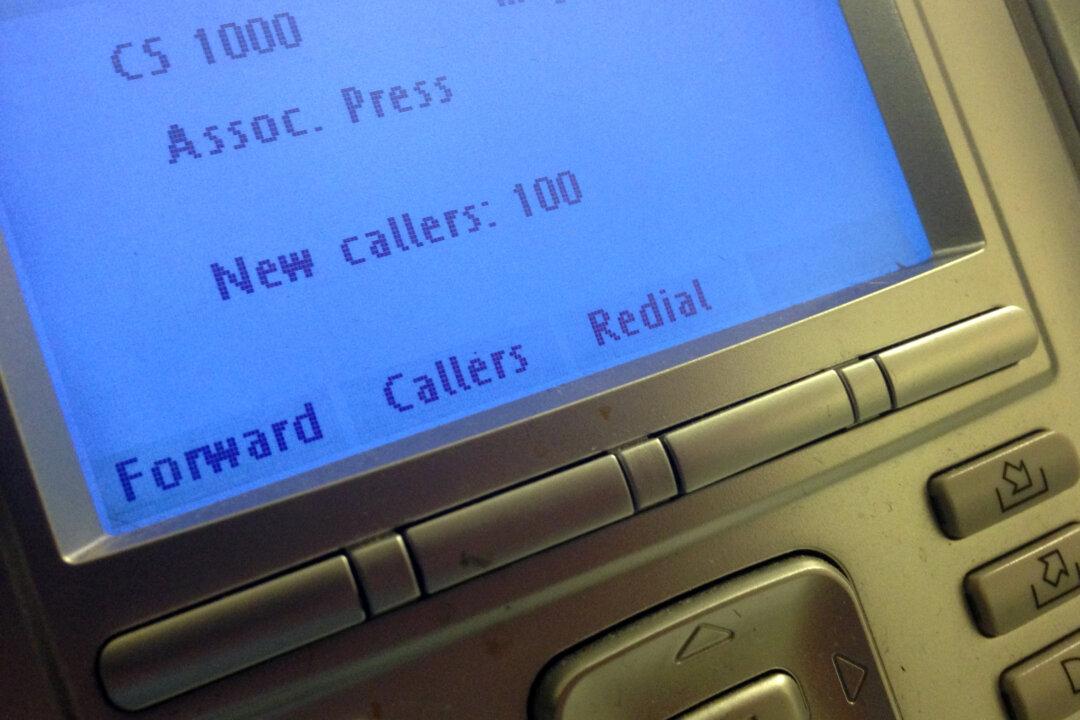Journalists and journalism groups are angry over the Justice Department’s seizure of two months of phone records from the Associated Press, which includes multiple sets of reporters in three states and both home and cell phones.
Sonny Albarado, national president of the Society of Professional Journalists, said in a statement that the secret acquisition of the records is “shameful and outrageous.”
Albarado, also city editor at the Arkansas Democrat-Gazette, said that “Attorney General Holder and President Obama have once again shown by their actions that their words about transparency and government openness are hollow.”
“This incident proves once again the need for a federal Shield Law,” Albarado added. “Prosecutors, unlike reporters, have subpoena power to compel testimony, yet lazy prosecutors often prefer to go after reporters’ notes and records rather than do the hard investigative work to dig out information without trampling on the First Amendment.”
Caroline Little, president and CEO of the Newspaper Association of America, a nonprofit representing nearly 2,000 newspapers, said in a statement that the actions of the Justice Department “shock the American conscience and violate the critical freedom of the press protected by the U.S. Constitution and the Bill of Rights.”
Reporters Without Borders, a nonprofit that assists journalists across the world, also came out against the seizures.
“We share the view of AP president and CEO Gary Pruitt, who called it a ‘massive and unprecedented intrusion’ in a letter yesterday to US attorney general Eric Holder,” Reporters Without Borders secretary-general Christophe Deloire said in a statement. “We urge the DOJ to comply immediately with the AP’s request for the return or destruction of the seized phone records.”
Deloire added that the group is calling the record seizures “a flagrant violation of constitutional guarantees” and also called for a federal shield law that would guarantee the protection of journalists’ sources.
Vincent Duffy, chairman of the Radio Television Digital News Association, said in a statement that the seizures were an “unprecedented invasion of privacy.”
“This action is unwarranted and absolutely strikes at the heart of the press freedoms we cherish in the United States. These critical freedoms are protected by both the U.S. Constitution and the Bill of Rights and have clearly been thrust aside by the federal government through this action,” Duffy said.
Fox News’ Greta Van Susteren told POLITICO in an email that the DOJ’s seizure sounds like a dragnet.
“What is stunning is the breadth of the seizure!” Van Susteren said. “If you read the AP President’s letter to DOJ, and if his letter is accurate, the seizure was very broad: 2 months of telephone records involving many who work at AP! 20 phone lines, home and cell? NY, DC, Connecticut employees? That doesn’t sound like a criminal investigation, that sounds like a dragnet to intimidate the media.”
For reference, ProPublica has put together a guide to how the government can acquire digital data. Instead of needing a judge’s warrant to listen to phone conversations, for instance, police can get courts to sign off on a subpoena, which requires a lesser standard of evidence."
Attorney General Eric Holder is expected to answer questions about the record seizures on May 15 during a House oversight hearing.





